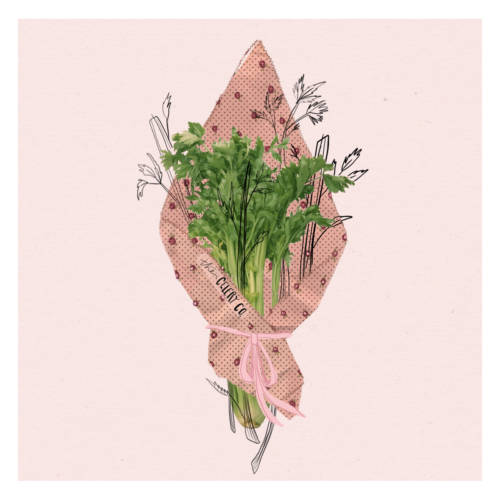
Why Did Humans Start Cultivating Celery? NPR’s “The Salt” Explores…
In a recent feature for The Salt, NPR’s farm-to-table blog that endearingly addresses “what’s on your plate” with a distinctly anthropological focus, Natalie Jacewicz asks, “Celery: Why?”, as part of a discussion about how, exactly, this unusual plant became a staple of the human diet– or at least a crop that everyone who has ever been to a supermarket can recognize.
Jacewicz, who opens the piece by claiming that she thinks celery has “about as much flavor as a desk lamp”, poses the question: How exactly did celery, which is fibrous, low-calorie, and low flavor, become an agricultural staple?
The answer, according to NPR, is complicated:
“‘Celery is odd, right?’ says botanist Charles Davis of Harvard University. ‘Another thing that’s always baffled me about umbellifers [the family to which celery belongs] is that most species are wickedly poisonous.’ Socrates famously died by consuming water hemlock, a member of that family.”
Wild celery, Vallisneria americana, is native to the Mediterranean, but according to Jacewicz’ research it’s unlike that the plant was ever eaten for taste. As she addresses in her piece:
“Carlos Quiros, a plant geneticist emeritus from the University of California, Davis… says that people in Egypt, Rome and China used the wild plant medicinally for a slew of ailments, but ‘usually for hangovers or as aphrodisiacs’”, she writes. “The Greeks and Romans favored wild celery’s leaves to weave victory crowns for athletes, Quiros says, as did the Egyptians. In fact, archaeologists discovered a celery wreath in Tutankhamun’s tomb.”

Later, the piece goes on to explain that celery was likely introduced to Europe via Dutch explorers who originally found it in Kalamazoo, though there’s some debate as to the origins of that story, as well. In either case, it’s worth noting that celery may have come into our gardens by necessity rather than by culinary selection, as some people speculate that celery was only ever grown to “bulk out” other meals. Read the full NPR story here.

































